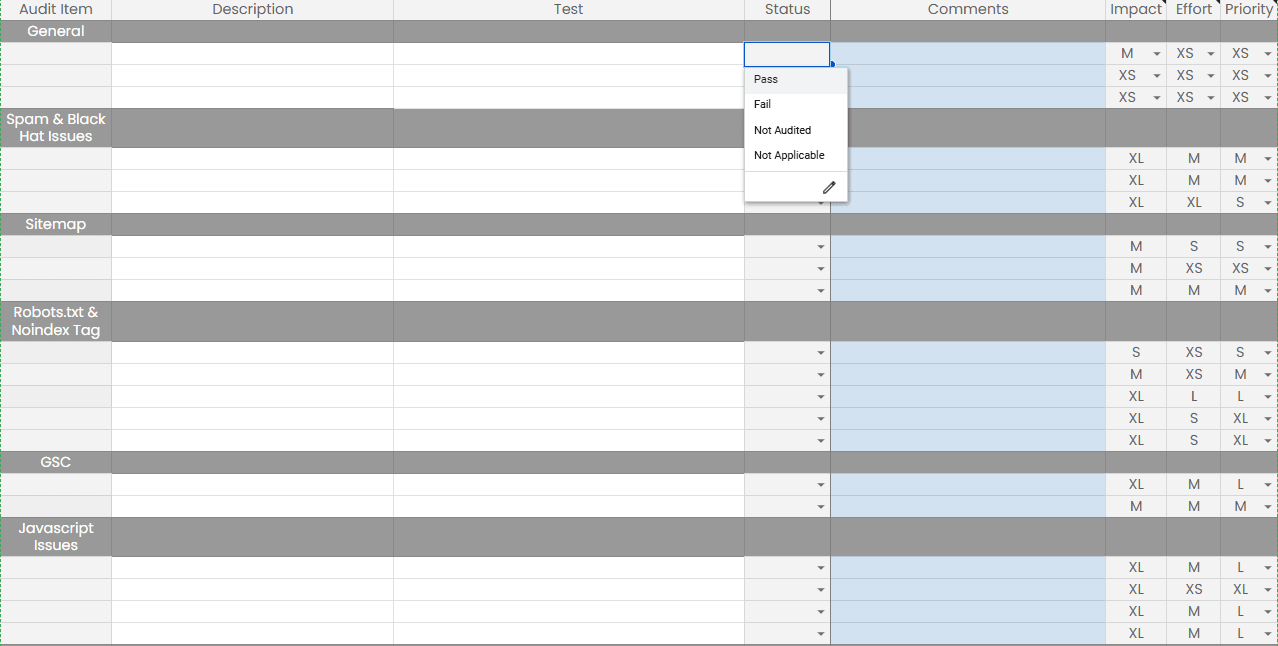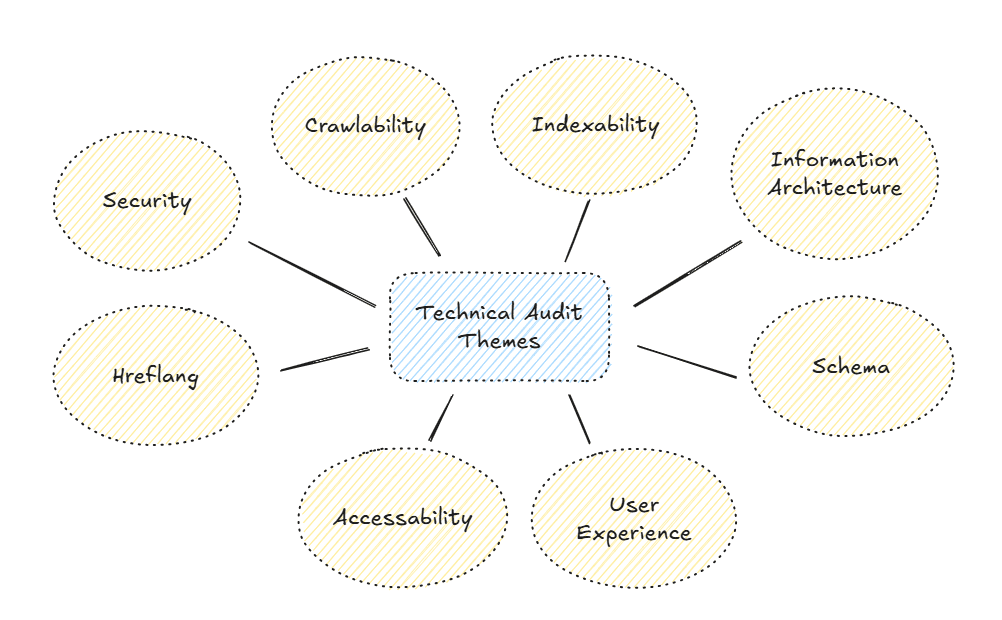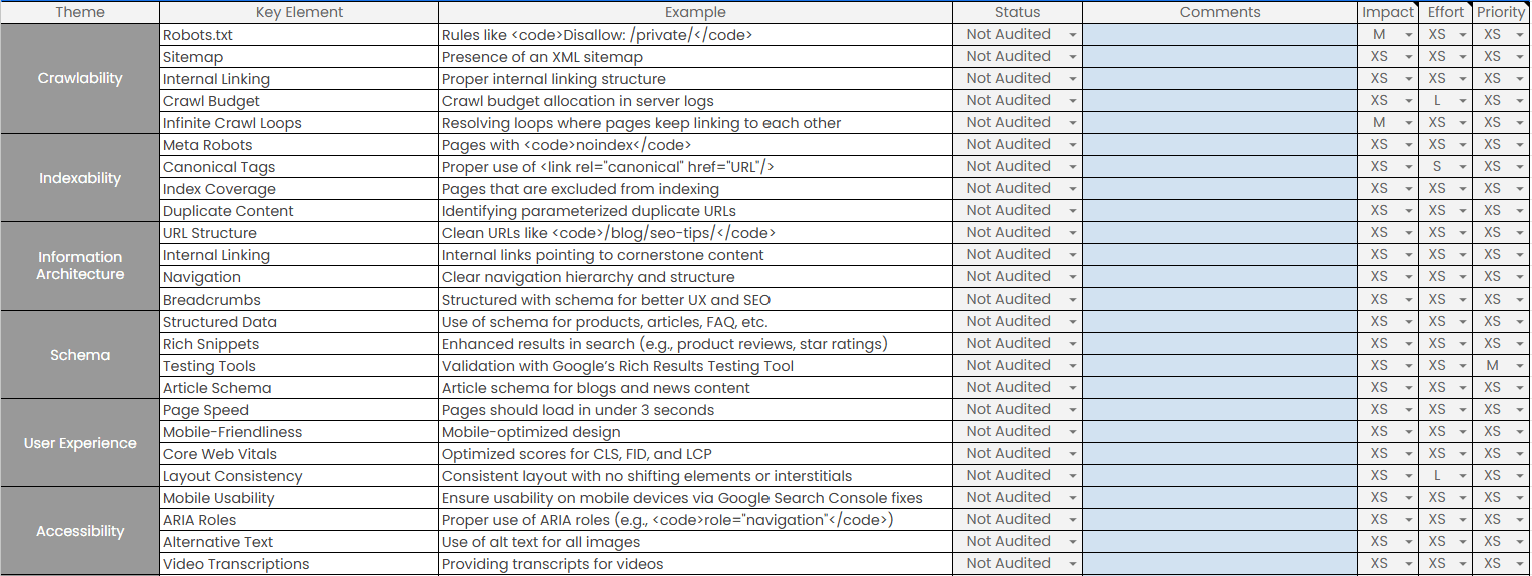How to Deliver Technical SEO Recommendations

The moment we talk about technical audits in SEO, everyone pulls out their checklists and gets down to business, right?
Ready to boost your SEO with Python ? Join my hands-on training designed for SEO professionals! Learn to automate tasks and analyze data easily. Don't miss out—start your journey today for limited time price of $65! Learn more here. You will also gain access to a Python community to showcase your work, and post questions!
Don't get me wrong—checklists are great. But I’ve always believed that SEO is not a checklist, because it’s not. How you approach and deliver a technical audit significantly impacts the quality of your recommendations.
Big sites and small sites cannot be treated the same. The depth required to address specific issues might mean adapting your audit approach to allow for more auditing time. For example, if you're agency-side, a technical audit might take anywhere from 15 hours to just 3–4 hours, depending on the situation.
From my experience, there are three distinct models for delivering technical SEO audits. Each serves a specific purpose and is best suited for particular scenarios.
The best thing I’ve read recently is, “SEO is subjective.” And honestly, the more you know about SEO and the more you’re exposed to diverse scenarios, the more you’ll agree.
The SEO Riddler Newsletter
Join the newsletter to receive the latest updates in your inbox.
The 3 Models of SEO Technical Audits
Depending on whether you work agency side or in-house, and the type and size of website you are working on, you may choose one of the following models to perform and deliver your technical audit.
1# The One and Done Model
This is probably the more wide spread and commonly used model. You'll hear SEOs screaming off the top of their lungs on LinkedIn "an SEO technical audit is not a monthly deliverable, it's a one time thing".... is it?
Pretty straight forward, you have a checklist of items that you go through them one by one. You deliver to the client a one-time in-depth audit that covers "everything" and all the needed fixes.
Usually there's some prioritization attached to each recommendation. The best tip I got is to use T-Shirt sizes to estimate impact of each item and effort needed to fix each item.
Here's an example of how you can build your tech audit checklist:

This example includes the following columns:
- Audit item
- Description of the audit item
- How to test for this item
- Audit status (Pass, Fail, Not Audit, Not Applicable)
- Comments (can include example URLs of the issue)
- Impact (in t-shirt size)
- Effort (in t-shirt size)
- Priority (in t-shirt size)
*This spreadsheet is for internal use. This is not the best way to deliver the recommendations to the developers or the clients.
This was my approach for years, but I’ve shifted away from it for several reasons. One major reason is that:
It locks you into completing the entire audit within a set timeframe that depends on the client budget —even when complexities arise that demand more time and deeper analysis. After all, if you promise a client a technical audit, you have to deliver a complete one on time, right?
Conducting a tech audit for a website, is like opening a black box, you have no idea what you will get, so you never really know how much time you need.
2# Technical Audit Items Delivered by Priority
I like this approach better, because here's how it works:
You segment the audit into high, medium and low priority items, and you deliver the audit in 3 batches accordingly. So for example, any issue that impacts Crawlability and Indexability would be a high priority and would be delivered in the first batch of the audit.
Here's an a non-comprehensive example of how a tech audit of this type may look like:

Obviously, this list is not comprehensive, and it's subjective based on your experience. You may say, oh sitemap issues are low priority for example or Schema codes should be a high priority.
How to deliver a technical SEO audit by priority?
This approach organizes the audit into three milestones: high, medium, and low priority items. Each milestone can be completed within a month or extended to a quarter, depending on the website's type and size.
One potential downside to this method is that a milestone, such as the high-priority one, might not uncover any significant issues to address. In such cases, you would inform the client that all checks for that milestone have been completed and that the website is performing well in those areas. If you're comfortable with the possibility of having few or no recommendations for certain milestones, this approach remains effective while ensuring transparency with your client.
3# Technical Audit Items Delivered by Theme
This is my preferred method of delivery. Mainly because it spreads out the tech audit as small bit-size deliverables and does not overwhelm the client, the dev team, and gives you more time to investigate each area.
The tech audit themes look like this:

Remember when John Muller said hreflang tags are one of the most misunderstood issues in SEO. Well there's a valid reason for that, we don't have enough time to dig into it, understand the website and how those tags work. Tech audits are done on a rush to meet deadlines, and I think this is why many SEO didn't have the chance to dig into the documentation and work of the other SEOs to understand the technical aspects of this fix, or other technical fixes!

I asked chatgpt to help me create a table of examples of tech audit items for each of the above themes. You can see it below. Remember this is a starting point, you may adapt and make changes as you see fit, it is your process after all.

So, the idea is similar to auditing by priority, every month or sprint for example, you can audit for a specific theme. This way you are spreading your tech audit across a more reasonable time that allows you to dedicate more attention to each audit theme.
Some General Tips
From experience, here are some tips for a successful relation with your devs!
- If your dev keeps asking for clarification, that's on you! The way you communicate the seo fixes has to give them all the information they need. A backward and forward with the developers is not something they appreciate, devs are usually super busy and don't have time for this!
- Do not start your technical recommendation with Core Web Vitals. It's a turn off and complicated to fix in many situation. 90% of the time it's a high effort low impact and may just complicate your relationship with the devs!
If you want to a get a sample on a developer ticket, make sure you checkout the next newsletter. It won't disappoint!
Thanks for reading so far! If you have any more tips you'd like to include in this article, feel free to email me or DM me on LinkedIn.
Happy Tuesday Everyone from the SEO Riddler
The SEO Riddler Newsletter
Join the newsletter to receive the latest updates in your inbox.



